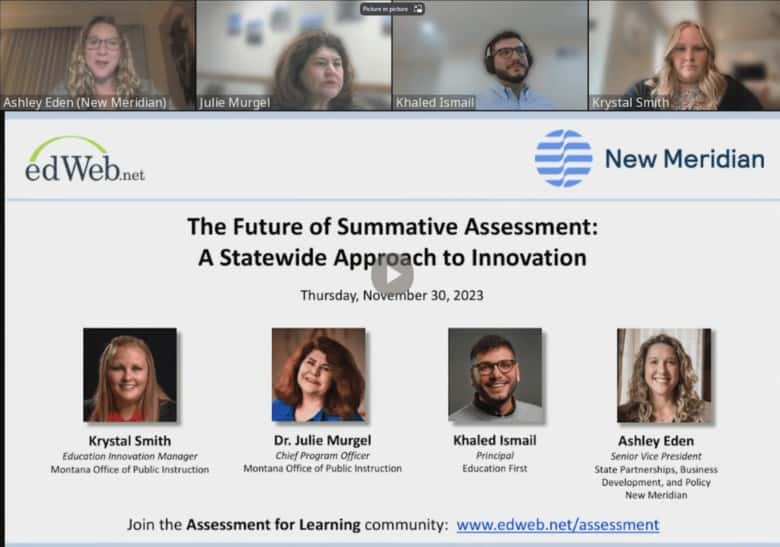
As every one of us knows, the pandemic was devastating to American schools, disrupting education for millions of students and leaving educators to recover without the data needed to guide resources properly.
While there’s no doubt this is a challenging time, it is also important to remember that every challenge brings opportunity—and what we do with the opportunity before us now can have a deep impact on how we educate generations of Americans.
A two-year absence of annual summative testing is rightly causing states to rethink assessment and the role it plays in our recovery. Done correctly, the new systems that emerge can be the single largest force to shape American education in decades. We have the chance to boldly re-imagine our educational models—including assessment—and create systems that increase equity, promote deeper learning, and embrace a more holistic view of education.
At New Meridian, we have spent a year studying the problem and talking to states about the right approach to develop next-generation assessments. We have codified our ideas into a whitepaper: Now is the Time to Reimagine Assessments. We invite everyone who cares about education—parents, teachers, administrators, state officials, employers and others—to read this paper and engage with us in this very important conversation.
Creating a Modern Assessment System
The spring 2022 administration will establish a new baseline from which future growth trends will be calculated. That makes this a great time to reexamine our paradigm for assessment, which has seen very little innovation in the last 20 years.
Summative testing is important, but it can no longer stand alone. Annual tests help us identify inequities, allocate resources and understand how the system serves all students. It is vital, but it is only one indicator and it’s not doing enough. Narrowing our view of student learning to a single score fails to serve the needs of individual students in a system where learning has been disrupted and student capabilities are extremely uneven.
As we look forward, we believe the next generation of assessment must operate from the classroom up, creating a single data set that eliminates conflicting or redundant information to best serve educators at every level, from teachers and administrators to state officials. This system can and should do several important things:
- Ensure that teaching, learning and assessment work together.
- Enable educators to tailor and adjust instructional support with a clear understanding of how students are learning and growing.
- Provide more meaningful, relevant opportunities for students to demonstrate what they’ve learned by aligning assessment to local curriculum.
- Account for diverse student backgrounds and social and cultural experiences to level the playing field.
- Offer a more continuous, equitable measure of student achievement rather than a single snapshot that reduces student learning to a single score.
In short, we want to rethink assessment as a means, not an end—a means to expand equity and close opportunity gaps, to inspire student, educator and parent/caregiver engagement, and to promote a more holistic view of student learning.
To learn more about our vision for next-generation assessments and guiding principles, read our white paper Now is the Time to Reimagine Assessments and let us know what you think. We look forward to beginning a robust discussion over the future of assessment. American education depends upon it.


